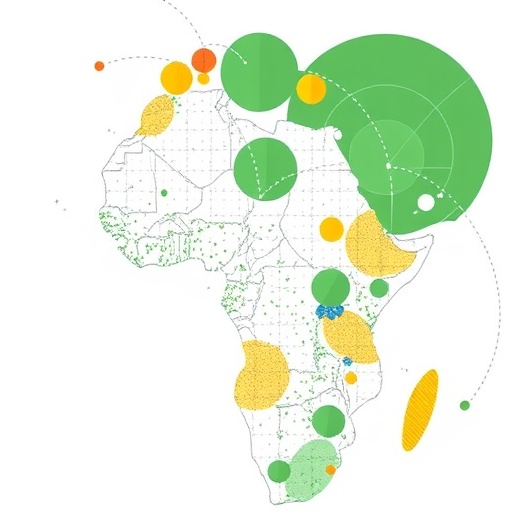
In a groundbreaking study, researchers have uncovered a compelling link between a woman’s lifetime history of hypertensive disorders during pregnancy and her sleep patterns in midlife. The findings, derived from the Project Viva women’s health cohort, suggest that women with such a history tend to experience shorter sleep duration and increased sleep disturbances. This revelation opens new avenues for understanding how specific health issues can perpetuate sleep-related problems long after childbirth.
Hypertensive disorders of pregnancy, including gestational hypertension and preeclampsia, are prevalent conditions that affect many women globally. These conditions are characterized by elevated blood pressure and can lead to serious complications for both the mother and the fetus. However, while the immediate effects of these disorders have been extensively studied, the long-term ramifications on women’s health, particularly in terms of sleep, have remained relatively underexplored until now.
The researchers utilized data from Project Viva, a well-established cohort study focused on the health of mothers and their children. The extensive database provided a rich source of information about participants’ medical histories, including any hypertensive disorders they may have encountered during pregnancy. Furthermore, follow-up surveys allowed researchers to assess current sleep habits and disturbances, providing a unique opportunity to draw connections between these variables.
A significant aspect of the study is its focus on midlife women, a demographic often overlooked in sleep research. As women transition through different life stages, including menopause, the quality of sleep can be critically affected. The implications of this research are crucial; understanding how previous pregnancy-related health issues can affect sleep in midlife is key to providing better care for women during this critical time in their lives.
Sleep disturbances in midlife can lead to a myriad of health issues, not limited to fatigue, irritability, and cognitive impairments. They can also exacerbate existing conditions, such as cardiovascular disease, obesity, and anxiety disorders. The findings from the Project Viva study will likely draw attention in both the medical and general communities, as the interplay between sleep and chronic health conditions is increasingly recognized as a significant public health concern.
Moreover, the study does more than simply highlight a correlation; it ventures into the realms of potential underlying mechanisms. Changes in hormonal levels that accompany pregnancy and the postpartum period, as well as the lasting effects of stress on the body, may contribute to the observed decrease in sleep quality. The research posits that the physiological and psychological scars left by hypertensive pregnancy disorders could extend their impact into later life, affecting how women sleep decades after giving birth.
As the researchers analyzed their findings, they found that women who reported significant issues with sleep also shared common characteristics that could amplify their challenges. Factors such as age, socioeconomic status, and body mass index (BMI) revealed a complex web of physical and emotional health aspects that interplay with sleep quality. These intersections emphasize the necessity for a holistic approach when addressing women’s health issues over the lifespan.
Interestingly, the study’s revelations also point toward the need for proactive healthcare policies that consider a woman’s reproductive history as a vital component of her long-term health strategy. By recognizing the persistent ramifications of hypertensive pregnancy disorders, healthcare providers could develop tailored interventions promoting healthier sleep patterns in midlife, ultimately leading to improved overall health outcomes for women.
In addition to having immediate healthcare implications, the research sheds light on the importance of raising awareness regarding the impacts of pregnancy-related health issues on sleep. It suggests that women should be educated about potential long-term effects during prenatal and postnatal care. This empowerment could spur women toward active management of their health, fostering an environment where they can seek help for sleep-related issues without stigma or hesitation.
As we move towards a more integrative understanding of women’s health, the findings from this study serve as a call to action. Communities, healthcare providers, and policymakers must come together to ensure that women receive comprehensive care that addresses not only the immediate aspects of pregnancy but also the long-term health consequences that may arise.
Ultimately, as more data emerges from studies like Project Viva, the narrative surrounding women’s health continues to evolve. There is a growing recognition of the nuances involved in managing health across the life span, particularly for women who have faced complicated pregnancies. The interplay between physical health, mental health, and sleep cannot be understated, and this research contributes significantly to that narrative.
In summary, the implications of the relationship between hypertensive disorders of pregnancy and sleep disturbances underscore the need for further investigation into this multifaceted issue. Breastfeeding and lifestyle adjustments could be avenues for further research and interventions to improve the quality of life for affected women. As awareness increases, addressing this health concern within both medical and community contexts becomes ever more crucial for fostering healthier futures for women everywhere.
In conclusion, as this research published in Biological Sex Differences benefits ongoing discussions surrounding women’s health, it highlights an integral aspect of health that warrants attention. The connection between past health experiences during pregnancy and current sleep quality touches on fundamental issues of medical treatment, wellness practices, and societal norms surrounding women’s health. Therefore, as society continues to better understand the complexities of women’s health, findings like these will play a pivotal role in shaping future health policies, research initiatives, and educational programs.
Subject of Research: Impact of hypertensive disorders of pregnancy on midlife sleep patterns in women
Article Title: Lifetime history of hypertensive disorders of pregnancy is associated with shorter sleep duration and more sleep disturbance in midlife: results from the Project Viva women’s health cohort.
Article References:
Heydari, K., Rifas-Shiman, S.L., Bertisch, S.M. et al. Lifetime history of hypertensive disorders of pregnancy is associated with shorter sleep duration and more sleep disturbance in midlife: results from the Project Viva women’s health cohort.
Biol Sex Differ 16, 46 (2025). https://doi.org/10.1186/s13293-025-00725-4
Image Credits: AI Generated
DOI: 10.1186/s13293-025-00725-4
Keywords: Hypertensive disorders, pregnancy, sleep duration, sleep disturbance, women’s health.
Tags: chronic sleep problems after childbirthgestational hypertension effectshypertension and sleep patternshypertensive disorders during pregnancylong-term effects of pregnancy hypertensionmaternal health and sleeppreeclampsia long-term healthpregnancy complications and wellnessProject Viva research findingssleep disturbances in midlifesleep duration issueswomen’s health cohort studies




